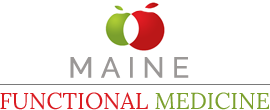Hypothyroidism
This is one of the most common issues we see. Many thyroid sufferers, usually of hypothyroidism (low), have taken traditional medication for years and have not seen a difference. There are many ways to treat hypothyroidism beyond synthetic drugs like Synthroid.
Usually, a doctor takes a blood test for a hormone called TSH. This hormone from the pituitary gland tells the thyroid what to do. If you have hypothyroidism, the pituitary should increase the TSH (Thyroid Stimulating Hormone) to tell the thyroid to put out more of the hormone.
Conversely, if the thyroid hormone is high, the pituitary is supposed to decrease the TSH, so the thyroid will be told to reduce its output. A more elevated TSH can mean lower thyroid. A lower TSH can mean a higher thyroid. It’s backward.
The problem is, it’s much more complicated than that. The thyroid puts out two primary hormones, T3 and T4. T3 is the active hormone and does most of the work. T4 is just a storage molecule, and the body needs to turn it into T3 to do the excellent work it does.
You want plenty of T3, the helpful one. To make it more complicated, the Total T3, Total T4, and the amount are free to do work, Free T3 and Free T4. Ultimately, the most help comes from Free T3.
Before civilization and exposure to numerous chemicals and metals, T4 would turn easily into T3. This would be released as Free T3. We would be fine. But, as we explain, this isn’t usually the case today.
First, normal thyroid function is dependent on many minerals and nutritional cofactors, mainly Iodine, Zinc, and Selenium, among others. Studies show rampant deficiencies in these things. Especially in the United States. Commercial farming no longer adds minerals back to the soil as in traditional farming methods.
Did you know that flour & baked goods used to contain Iodine in the U.S.?
Around the 1940s, it was removed and replaced by Bromine. We are so deficient in Iodine. We use it to do a thyroid scan. If we had all the Iodine we needed, the thyroid would not take up any more when given to people.
In medicine, we give Iodine to patients, let the thyroid take it up, and scan the thyroid for how well it does this. A test called a Thyroid Scan assesses the thyroid, which wouldn’t work if we were not deficient.
Converting T4 into the helpful T3 is dependent on many cofactors, which are usually deficient. Also, some things block this conversion. Chlorine in water, Fluoride in toothpaste and water, Bromine in baked goods, and hot tubs are all common inhibitors of the transformation. These can make the good T3 turn back into T4 for storage.
Testing a Reverse T3 tests this. If elevated, these toxins must be decreased or eliminated and deficiencies must be fixed. Sometimes, patients need extra T3. This can be done using Liothyronine (Cytomel), synthetic T3, or Natural Thyroid Hormone. It combines T3 and T4 together. We prefer the Natural Thyroid Hormone. This contains both hormones and costs less.
As you can see, the thyroid gland can be a complicated subject. It may take advanced testing, fix deficiencies, decrease or eliminate exposure to toxins, and take Natural Thyroid Hormone or a combination of synthetic hormones to get it right.
Ultimately, the patient should feel better. Some studies show that taking Natural Thyroid Hormone, whether you need it or not, decreases heart disease and other problems. Not bad for an inexpensive hormone. Especially if it can make you feel better!
If you feel you may have hypothyroidism or have taken Thyroid Medication for some time and haven’t seen the benefits, contact The Maine Center for Functional Medicine at (207) 941-0080 for a Consultation. We can get more aggressive with your hypothyroidism or find out what else it may be.
